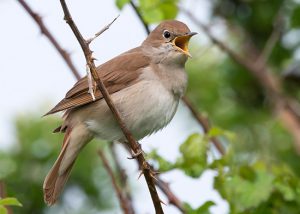Is it true that animals and birds enjoy talking?

For humans, communication is the basis of our relationships and part of how we successfully function in our daily lives.
Animals make sounds to issue warnings, attract mates, signal distress, find one another and defend their territory. Similar to ours, their vocal chords fulfill myriad purposes that lay their social foundations and ensure their survival.
But have we ever wondered, which of all the creatures we share our planet with vocalizes the most? And what’s the value in being a chatterbox, when making sounds also carries a risk of alerting predators?
Social creatures
We might assume that a driving factor of animal communication may be how social the species is.
And it’s really so some highly social species are also more voluble.
For example, flocking birds such as quelea are constantly cacophonous on the wing.

To this group belong some mammals like the meerkat, a small, mongoose-like creature from southern Africa that lives in large, gregarious communities that cooperatively raise young, forage and look out for predators.

However, vocals aren’t necessarily the gold standard of animal communication. “Animals are constantly broadcasting information, whether it’s vocal, olfactory, through posture — it’s all being assessed by other animals, who form an integrative idea of what to do and how to interact with this individual,” said Arik Kershenbaum, a zoologist at the University of Cambridge in the UK.
When it comes to vocal communication, social species “tend to have a greater diversity in the messages they convey.”
“Animals that are solitary need to communicate simpler messages to the rest of the world compared to animals that live in cooperative groups. Communication in cooperative group is necessary to maintain social hierarchies, locate and share food and alert one another to threats. You can see that if you’re in a cooperative group, there may be more to say than if you’re living on your own.”
There is evidence that some animal calls have specific meanings (a type of information researchers call referential communication) that could be considered word-like. For example, some monkeys issue specific alarm calls that signify a predator threat, and dolphins have distinct whistling sounds for different relatives. They use this particular sound as a name, which could be considered a word.

There is a theory that the medium itself is the message. Effectively, birds could be saying, “Look what a complex song I can sing! That means I must be a really good father!” In some sense, vocal acrobatics may be a substitute for colorful plumage, which is another way birds attract mates.

Do animals laugh?
The scholars argue, animals can be split into two broad groups: nonvocal (or “innate”) learners, and vocal learners, animals that learn to vocalize by imitating sounds.
Only a few groups of animals fall into the vocal-learning camp: songbird species, and some nonhuman mammals, including dolphins, whales, elephants and seals.

There is a hypothesis that the most vocal animals are typically the ones that have to worry less about predators.
“Interestingly, especially voluble vocal learners tend to be near the top of the food chain — like whales, dolphins and elephants.”

“Or they’re vocalizing in the ultrasonic range so can’t be heard, like bats,” says Arik Kershenbaum. “Amongst the birds, we found that the parents in the songbirds descended from apex predators. So their ancestors were at the top of the food chain. I think they overcome predation and then get away with vocalizing a lot.”
Many scientists believe, among these vocal-learning animals, dolphins would be strong contenders for the title, based on the research mentioned above. If you are ever in the water with dolphins, it’s almost never quiet. They’re always, always vocalizing.
Although animals may not be saying multiple discrete things in the way our speech does, their vocalizations are nevertheless rich and dense with meaning.

































